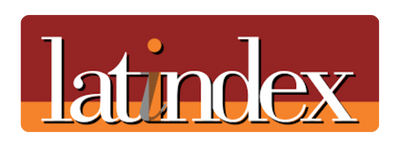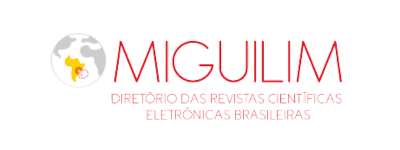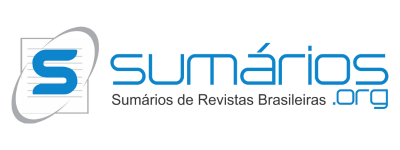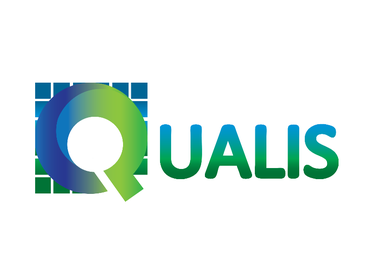EFFICIENCY IN WASTE MANAGEMENT IN A CONDOMINIUM
ANALYSIS AND PROPOSALS ALIGNED WITH SDGS FOR SUSTAINABILITY
Visualizações: 421DOI:
https://doi.org/10.56579/rei.v6i5.1471Keywords:
Waste separation behavior, Household waste, Quality toolsAbstract
This study analyzed the effectiveness of solid waste management in a residential condominium, identifying flaws and proposing improvements to align practices with sustainability principles and the Sustainable Development Goals (SDGs). The methodology included the use of questionnaires and quality tools such as Flowcharts, FMEA, and the 5W2H Framework for data analysis and identifying improvement opportunities. Analysis of the 26 questionnaires revealed a predominantly young population in the condominium, highlighting the urgent need to improve waste segregation and management according to current regulations. Major issues identified included inadequate waste mixing and poor selective collection. To address these issues, the study proposed implementing a selective collection system, awareness campaigns, and installing specific bins. The proposed methodology proved effective in identifying flaws and improvements aligned with SDG 11, which promotes sustainable cities. This model could serve as a basis for future research in other condominiums, expanding the impact of solid waste management practices. As a result, the study demonstrated the methodology's effectiveness in evaluating solid waste management in condominiums, contributing to sustainable practices and their urban replicability.
Downloads
References
ABNT NBR ISO 19011:2018. Diretrizes para auditorias de sistemas de gestão. Rio de Janeiro: ABNT, 2018.
ABNT. Associação Brasileira de normas técnicas. NBR ISO 9001. Sistemas de Gestão da qualidade - Requisitos. Rio de Janeiro: ABNT. 2008.
ABRELPE - Associação Brasileira de Empresa de Limpeza Pública e Resíduos Especiais. Panorama dos resíduos sólidos do Brasil 2010. São Paulo: ABRELPE, 2011. 206p.
AGUNWAMBA, J. Gestão de Resíduos Sólidos na Nigéria: Problemas e Questões. Gestão Ambiental 22, v. p. 849–856, 1998. DOI: https://doi.org/10.1007/s002679900152
AKIL, Azilah M.; FOZIAH, J.; HO, C. S. The Effects of Socio-Economic Influences on Households Recycling Behaviour in Iskandar Malaysia. Procedia - Social and Behavioral Sciences, v. 202, p. 124-134, ago. 2015. Disponível em: https://doi.org/10.1016/j.sbspro.2015.08.215. Acesso em: 27 jun. 2024.
ANTONY, J. et al. A study on the Ishikawa's original basic tools of quality control in South American companies: results from a pilot survey and directions for further research. The TQM Journal, v. 33, n. 8, p. 1770-1786. 2021. DOI: 10.1108/ TQM-01-2021-0004
ABNT. Associação Brasileira de normas técnicas. NBR 14.031. Gestão Ambiental - Avaliação de Desempenho - Diretrizes. Rio de Janeiro: ABNT. 2004
ABNT. Associação brasileira de normas técnicas. ABNT NBR ISO 14000, 14001, 14004: sistema de gestão ambiental. Rio de Janeiro: ABNT, 2004. Disponível em: https://abnt.org.br/. Acesso em: 08 dez. 2023.
ABNT. Associação Brasileira de normas técnicas. ISO 14010: especificação para auditorias ambientais. Rio de Janeiro: ABNT, 2004. Disponível em: https://abnt.org.br/. Acesso em: 08 dez. 2023.
BRASIL. Conselho Nacional do Meio Ambiente. Resolução CONAMA nº 275, de 25 de abril de 2001. Disponível em: https://www.legisweb.com.br/legislacao/?id=97507. Acesso em: 09 nov. 2023.
BRASIL. Lei nº 12.305, de 2 de agosto de 2010. Institui a Política Nacional de Resíduos Sólidos; altera a Lei nº 9.605, de 12 de fevereiro de 1998; e dá outras providências. Brasília: Diário Oficial, Brasília, 2010. Disponível em: http://www.planalto.gov.br/ccivil_03/_ato2007- 2010/2010/lei/l12305.htm. Acesso em: 10 dez 2023.
BRASIL. Lei nº 9.795, de 13 de julho de 1999. Dispõe sobre a educação ambiental, institui a Política Nacional de Educação Ambiental e dá outras providências. Brasília, DF, 1999. Disponível em: http://www.planalto.gov.br/ccivil_03/leis/l9795.htm. Acesso em 27 jun. 2024.
CERQUEIRA, Jorge Pedreira de. Sistemas de Gestão Integrados. Rio de Janeiro: Qualiymark, 2006.
CHEN, W.; SHI, X.; ZUO, W. Uma cidade verdadeiramente modelo ou apenas um conto de fadas? Anotações de aula em Psicologia da educação e mídia pública, v. 4., p. 525-530. 2023. DOI: https://doi.org/10.54254/2753-7048/4/2022167
DADARIO, N.; OLIVEIRA, S.; DIAS BAPTISTA, R. Análise do processo de comunicação da coleta seletiva de resíduos. Revista Observatório, [S. l.], v. 9, n. 1, p. a31pt, 2023. DOI: 10.20873/uft.2447-4266.2023v9n1a31pt. Disponível em: https://sistemas.uft.edu.br/periodicos/index.php/observatorio/article/view/18026. Acesso em: 18 jul. 2024.
DAYCHOUW, M. 40 Ferramentas e Técnicas de Gerenciamento. Rio de Janeiro: Brasport, 2007.
DE OLIVEIRA, O.; DE MEDEIROS, G. Municipal solid waste management in the amazon: environmental, social, and economic problems, gaps, and challenges. Environmental impact 2020. Southampton UK: WIT Press, 2020. Disponível em: https://doi.org/10.2495/eid200021. Acesso em: 28 jun. 2024.
DEDINEC. et al. Economic and environmental evaluation of climate change mitigation measures in the waste sector of developing countries. Journal of Cleaner Production, v. 88, p. 234-241, fev. 2015. DOI: https://doi.org/10.1016/j.jclepro.2014.05.048
DEONARINE, A; SCHWARTZ, E.; RUHL, L. Environmental Impacts of Coal Combustion Residuals: Current Understanding and Future Perspectives. Environmental Science & Technology, 24 jan. 2023. DOI : https://doi.org/10.1021/acs.est.2c06094.
DEVENDRAN, A. et al. Optimization of Municipal Waste Streams in Achieving Urban Circularity in the City of Curitiba, Brazil. Sustainability, v. 15, 2023. DOI: https://doi.org/10.3390/su15043252
FALCO, J. Estatística aplicada. Cuiabá: Ed. UFMT; Curitiba: UFPR, 2008. p. 92.
FEHR, M. Medindo o impacto ambiental da gestão do fluxo de resíduos em edifícios de apartamentos brasileiros. Environ Dev Sustain, v. 11, p. 319–328, 2009. DOI : https://doi.org/10.1007/s10668-007-9114-3
FERRONATO, N. et al. Comparação dos impactos ambientais relacionados aos resíduos sólidos urbanos e à gestão e reciclagem de resíduos de construção e demolição em uma cidade em desenvolvimento da América Latina. Environ Sci Pollut Res, v. 30, p. 8548–8562. 2023. DOI: https://doi.org/10.1007/s11356-021-16968-8
FIRMANSYAH, F. et al. Variation in municipal solid waste generation and management across time and space. Resources, Conservation and Recycling, v. 204, p. 107472, maio 2024. DOI: https://doi.org/10.1016/j.resconrec.2024.107472.
GALVÃO N.; ALVES I; BASSIN J. P. Chapter 32 - Municipal solid waste management in Brazil: overview and trade-offs between different treatment Technologies. Waste management and resource recycling in the developing world. p. 755-772.
HAGEMEYER, C.; GERSHENSON, J. K.; JOHNSON, D. M. Classification and application of problem-solving quality tools: a manufacturing case study. The TQM Magazine, 2006. Disponível em: https://www.emerald.com/insight/content/doi/10.1108/09544780610685458/full/html. Acesso em: 20 nov. 2022.
HIGUERAS, PL, Sáez-Martínez, FJ, Lefebvre, G. et al. Locais contaminados, gestão de resíduos e química verde: novos desafios do monitoramento à remediação. Environ Sci Pollut Res, v. 26, p. 3095–3099.2019. DOI : https://doi.org/10.1007/s11356-018-3564-z
HRISTOVSKI, Kiril et al. The municipal solid waste system and solid waste characterization at the municipality of Veles, Macedonia. Waste Management, v. 27, n. 11, p. 1680-1689, jan. 2007. DOI: https://doi.org/10.1016/j.wasman.2006.09.003.
IPEA. Instituto de pesquisa econômica aplicada. Agenda 2030: ODS – metas nacionais dos Objetivos de Desenvolvimento Sustentável. Brasília: IPEA. 2018. Disponível em: Acesso em: 17 mar. 2024.
J. PADILLA; TRUJILLO, J. Waste disposal and households’ heterogeneity. Identifying factors shaping attitudes towards source-separated recycling in Bogotá, Colombia. Waste Management, v. 74, p. 16-33, abr. 2018. DOI: https://doi.org/10.1016/j.wasman.2017.11.052.
KHAN, Shamshad et al. Technologies for municipal solid waste management: Current status, challenges, and future perspectives. Chemosphere, v. 288, p. 132403, fev. 2022. DOI: https://doi.org/10.1016/j.chemosphere.2021.132403.
KORVAH F. K; BAYSEN E. Lack of Proper Commercial and Domestic Waste Practices in Montserrado County ‘Monrovia, Liberia. International Journal of Applied Science and Research. V. 6. ISSN: 2581-7876. DOI: https://doi.org/10.56293/IJASR.2022.5508.
LA ROVERE, E. Manual de auditoria Ambiental. Rio de Janeiro: Qualitymark, 2001.
LEFF, E. Saber ambiental: sustentabilidade, racionalidade, complexidade, poder. Tradução de Lúcia Mathilde Endlich Orth – Petrópolis, RJ: Vozes, 2001. Disponível em: https://edisciplinas.usp.br/pluginfile.php/4245135/mod_resource/content/3/Saber%20Ambiental.pdf. Acessso em: 21 out 2024.
LEOPOLD, L. B., CLARKE, F. E., HANSHAW, B. B., & BALSLEY, J. R. A procedure for evaluating environmental impact. Geological Survey Circular. n. 645. U.S. Department of the interior, 1971.
MALUF FILHO, D.; COELHO, ST; PERECIN, D. Oportunidades e desafios da gaseificação de resíduos sólidos urbanos (RSU) no Brasil. Energias, v. 15, 2735. 2022. DOI : https://doi.org/10.3390/en15082735
MCQUATER, R. E. et al. (1995). Using quality tools and techniques successfully. The TQM Magazine, v. 7, n. 6, p. 37–42. 1995.
OLIVEIRA, et al. Cidadania, meio ambiente e sustentabilidade. Caxias do Sul, RS: Educs, 2017. Disponível em: https://www.ucs.br/site/midia/arquivos/ebook-cidadani-meioamb_3.pdf. Acesso em: 03 ago. 2023.
ONU. A ONU e o meio ambiente. 2020. Disponível em: https://brasil.un.org/pt-br/91223-onu-e-o-meio-ambiente. Acesso em: 16 ago. 2023.
ONU. Transformando nosso mundo. A Agenda 2030 para o desenvolvimento sustentável, 2015. Disponível em: https://www.un.org/sustainabledevelopment/. Acesso em: 23 mar. 2023.
PALADY, Paul. FMEA Author's Edition. 2. ed. [S. l.]: Practical Applications...Quality/Reliability, 1997. 300 p.
PNUMA. O mundo precisa superar a era do desperdício e transformar o lixo em recurso. Disponível em: https://brasil.un.org/pt-br/261852-pnuma-o-mundo-precisa-superar-era-do-desperdício-e-transformar-o-lixo-em-recurso. Acesso em: 27 jun. 2024.
QDAIS, H. A.; HAMODA, M; NEWHAM, J. Analysis of residential solid waste at generation sites. Waste Management Research. V. 15, p. 395-406. 1997.
RATHORE, P., SARMAH, SP & SINGH, A. Localização-alocação de lixeiras na gestão de resíduos sólidos urbanos: um estudo de caso da cidade de Bilaspur, Índia. Environ Dev Sustain, v. 22, p. 3309–3331, 2020. DOI : https://doi.org/10.1007/s10668-019-00347-y.
REZENDE, D.; ALVARES, M. E. G.; & VENTURA, K. S. Análise dos Desafios da Gestão de Resíduos Sólidos Urbanos com Ferramentas de Qualidade no Município de Ribeirão Preto – SP. Revista Nacional De Gerenciamento De Cidades, v. 8, n. 55. 2020. DOI: https://doi.org/10.17271/2318847285520202291
RIBEIRO, B. M. G.; MENDES, C. A. B. Avaliação de parâmetros na estimativa da geração de resíduos sólidos urbanos. Revista Brasileira de Planejamento e Desenvolvimento. Curitiba: Universidade Tecnológica Federal do Paraná. v. 7, n. 3, p. 422-443, 2018. Disponível em:https://www.lume.ufrgs.br/handle/10183/188796. Acesso em 27 jun. 2024.
S.MOR, K. Ravindra. Aterros municipais de resíduos sólidos em países de baixa e média renda: impactos ambientais, desafios e práticas de gestão sustentável.
SAINI, P. Sharad, V. Pharmacy Education: TQM. 2014. International Journal of Pharmacy and Life Sciences, vol. 5, n. 4, p 3440-3451, 2014.
SAKAI, S. et al. World terends in municipal solid waste management. Waste Management, v. 16, n. 5-6, p. 341-350, jan. 1996. DOI: https://doi.org/10.1016/s0956-053x(96)00106-7.
SANCHETA, L. do N.; FERONI, R. de C. Aplicação integrada da OEE com ferramentas da qualidade a uma frota de equipamentos de movimentação de resíduos industriais. Brazilian Journal of Production Engineering, v. 7, n. 5, p. 216–229. 2021. DOI: https://doi.org/10.47456/bjpe.v7i5.37070.
SANTOS, J. A. D. S.; FERREIRA, L. V. S. Psicologia e Meio Ambiente: Plano de Ação 5w2h com enfoque no comportamento pró ambiental. Revista Multidisciplinar De Educação E Meio Ambiente, v. 2, n. 3, p. 94. 2021 Disponível em: https://doi.org/10.51189/rema/1778
SARIATLI, F. Economia linear versus CE: um estudo comparativo e analisador para otimização da economia para a sustentabilidade. Visegr J Bioecon Sustain Dev v. 6, n. 1, p. 31–34. 2017. DOI: https://doi.org/10.1515/vjbsd-2017-0005
SILVA, I. S.; TAGLIAFERRO, E. R.; OLIVEIRA, A. J. Gerenciamento dos resíduos sólidos domiciliares no município de Jales–SP e sua relação para com a política nacional de resíduos sólidos (PNRS). Brazilian Journal of Development, v. 7, n. 1, p. 11475-11499, 2021. Disponível em: https://www.brazilianjournals.com/index.php/BRJD/article/view/23999. Acesso em 27 jun. 2024.
SLACK, Nigel et al. Administração da produção. 8. ed. São Paulo: Atlas, 2018.
Soković, M., Jovanović, J., Krivokapić, Z., and Vujović, A. Basic quality tools in continuous improvement process. Journal of Mechanical Engineering, v. 55, n. 5, p. 1– 9. 2009.
STOEVA, Katya; ALRIKSSON, Stina. Influence of recycling programmes on waste separation behaviour. Waste Management, v. 68, p. 732-741, out. 2017. DOI: https://doi.org/10.1016/j.wasman.2017.06.005.
STRUK, Michal; BOĎA, Martin. Factors influencing performance in municipal solid waste management – A case study of Czech municipalities. Waste Management, v. 139, p. 227-249, fev. 2022. DOI: https://doi.org/10.1016/j.wasman.2021.09.022.
WALERKO, Vandressa Siqueira et al. O Plano de Gerenciamento de Resíduos Sólidos no Licenciamento Ambiental: Um estudo de caso na Cidade de Pelotas, RS. Revista de Ciências Ambientais, v. 15, n. 1, p. 01, 27 abr. 2021. Disponível em: https://doi.org/10.18316/rca.v15i1.6155.
Yang H et al. Waste management, informal recycling, environmental pollution and public health. J Epidemiol Community Health, v. 72, p. 237-243. DOI: https://doi.org/10.1136/jech-2016-208597.
ZHANG, Dongqing; KEAT, Tan Soon; GERSBERG, Richard M. A comparison of municipal solid waste management in Berlin and Singapore. Waste Management, v. 30, n. 5, p. 921-933, maio 2010. DOI: https://doi.org/10.1016/j.wasman.2009.11.017
ZHANG, Zhechen et al. Municipal solid waste management challenges in developing regions: A comprehensive review and future perspectives for Asia and Africa. Science of The Total Environment, p. 172794, abr. 2024. DOI: https://doi.org/10.1016/j.scitotenv.2024.172794.
Downloads
Published
How to Cite
Issue
Section
License
Copyright (c) 2024 Interdisciplinary Studies Journal

This work is licensed under a Creative Commons Attribution 4.0 International License.
The Journal of Interdisciplinary Studies adopts the Creative Commons Attribution 4.0 International License (CC BY 4.0), which allows for sharing and adapting the work, including for commercial purposes, provided proper attribution is given and the original publication in this journal is acknowledged.













